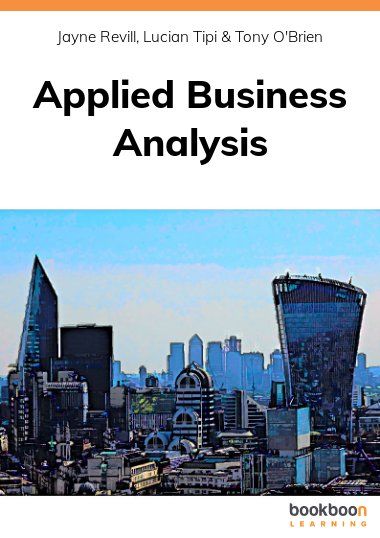This book is partly based on lectures the authors give at Sheffield Business School, Sheffield Hallam University between 2010- 2015. It is an exploratory guide to business analysis. It aims to develop foundation knowledge on the techniques behind data analysis and decision making based on information derived from data analysis. It delves into the use of appropriate software tools to analyse data and provides rich examples from real world organisational data sets. The examples are self-contained and easy to interpret, thus giving the learner options to learn freely at a pace they are comfortable.

